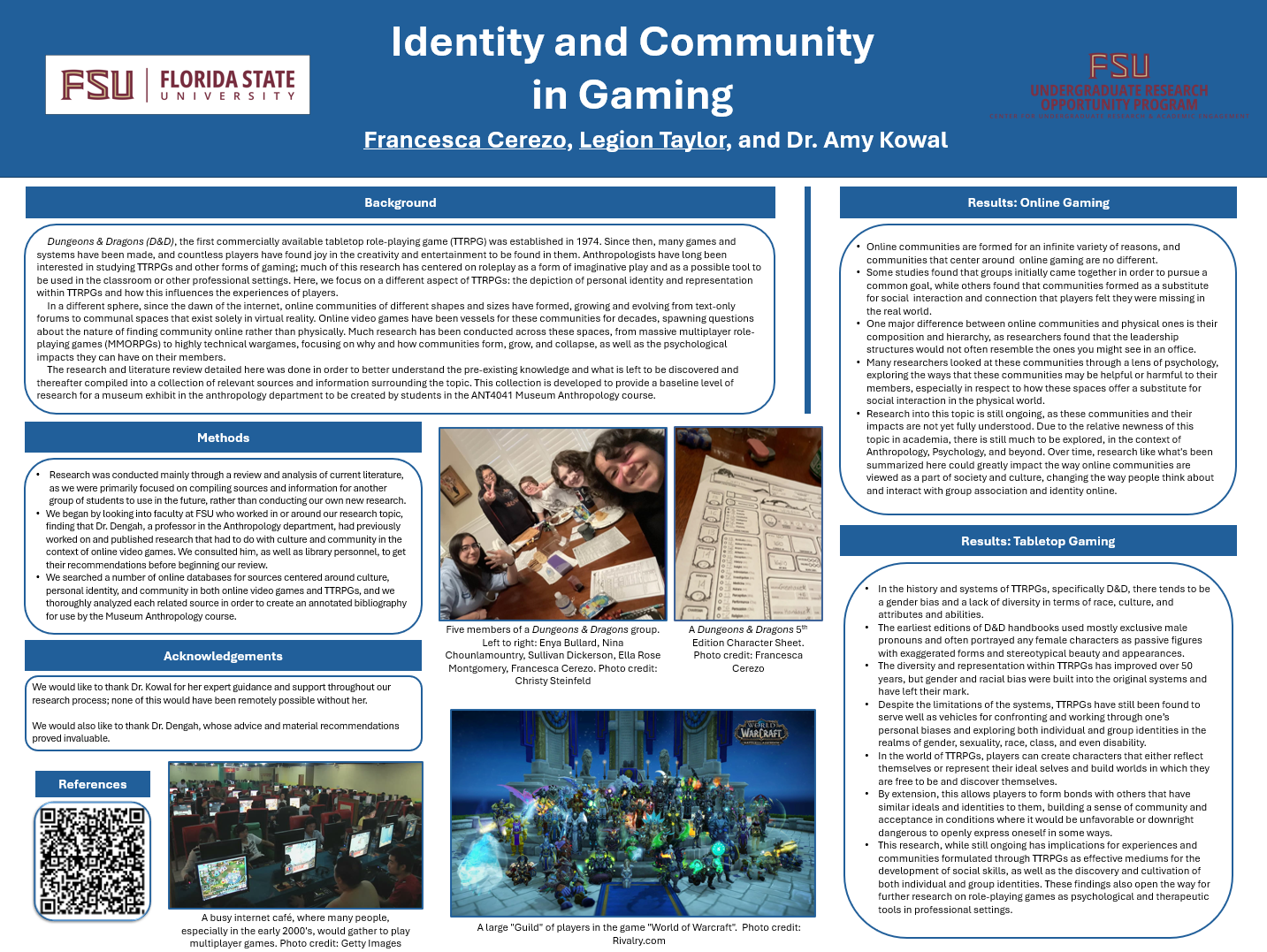Research Symposium
25th annual Undergraduate Research Symposium, April 1, 2025
Francesca Cerezo Poster Session 1: 9:30 am - 10:30 am / Poster #100

BIO
Francesca Cerezo is a second-year Classical Civilizations major with a minor in Anthropology and is currently a UROP Research Assistant. She is a member of the Eta Sigma Phi National Classics Honors Society, as well as the Hispanic/Latinx Student Union and Pride Student Union at Florida State. She is interested in classical and ancient language, literature, archaeology, and other culture, and cultural anthropology, and plans to pursue a graduate degree in the field of classics.
Identity and Community in Gaming
Authors: Francesca Cerezo, Dr. Amy KowalStudent Major: Classical Civilizations
Mentor: Dr. Amy Kowal
Mentor's Department: Department of Anthropology Mentor's College: College of Arts and Sciences Co-Presenters: Legion Taylor
Abstract
In today’s world, gaming, both online and physical, is a prevalent activity. Tabletop role-playing games (TTRPGs) have been present in the United States for the last 50 years, while online communities have offered an alternative to physical communities for much of the 21st Century. In this project, we studied research done by anthropologists and other professionals to discern how TTRPGs can serve as mediums for self-exploration and expression, and what makes online communities different from physical ones. This research was conducted through a review of available peer-reviewed literature on the topics in the form of books articles, as well as interviews with professionals in this field. In terms of online gaming, analysis focused on online communities and their organization outside of society’s typical structures. Research found that in very broad online spaces, people organize themselves in unorthodox ways; people from diverse social backgrounds are able to interact without the restrictions of their daily lives. For TTRPGs, we focused on the representation of minority identity groups within these types of media and the experiences of diverse players as individuals and groups. This subject found that the diversity and representation of TTRPGs has evolved over time, and despite remaining issues, players are able to connect with fictional characters and with other players and explore and express themselves and their prejudices and identities through TTRPGs. This research is significant to the fields of anthropology and psychology and could change the ways that community, bond formation, and identity are studied in the future.
Keywords: Anthropology, Gaming, Identity, Community

